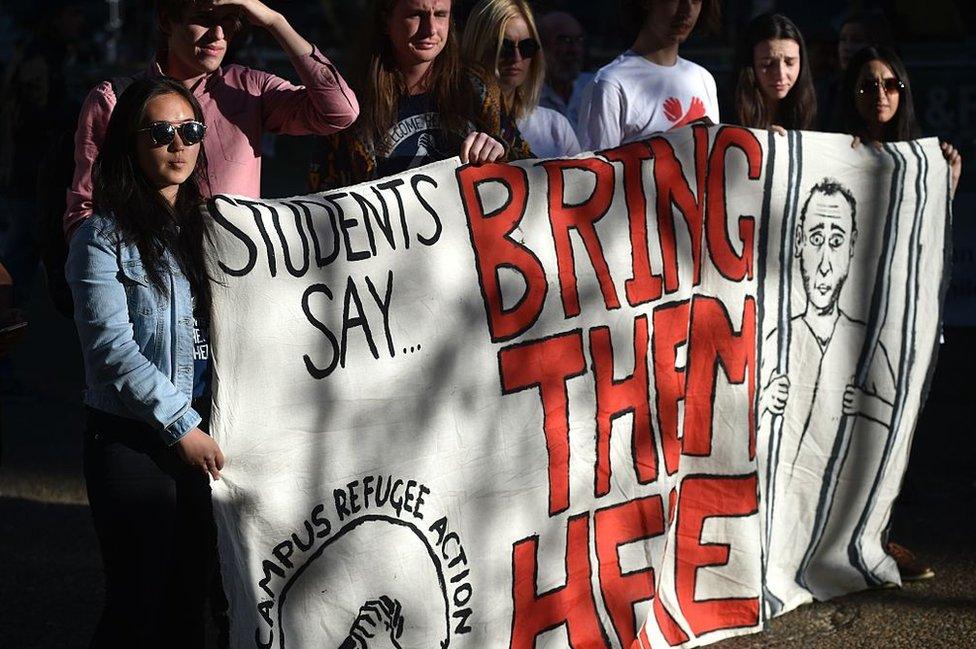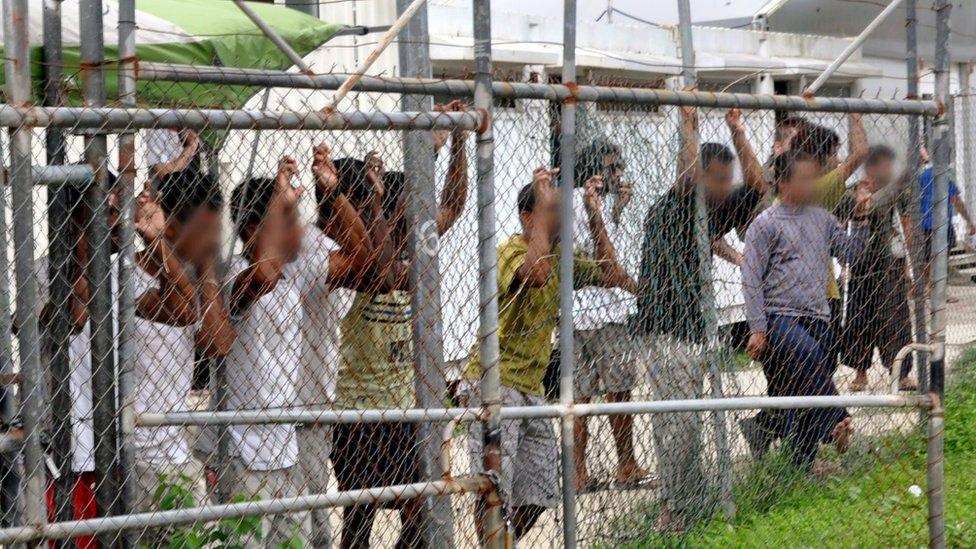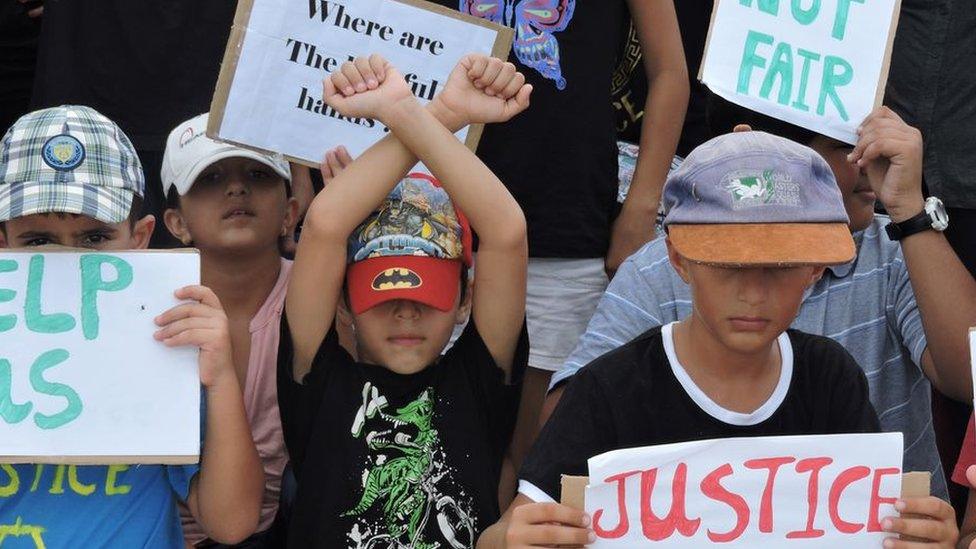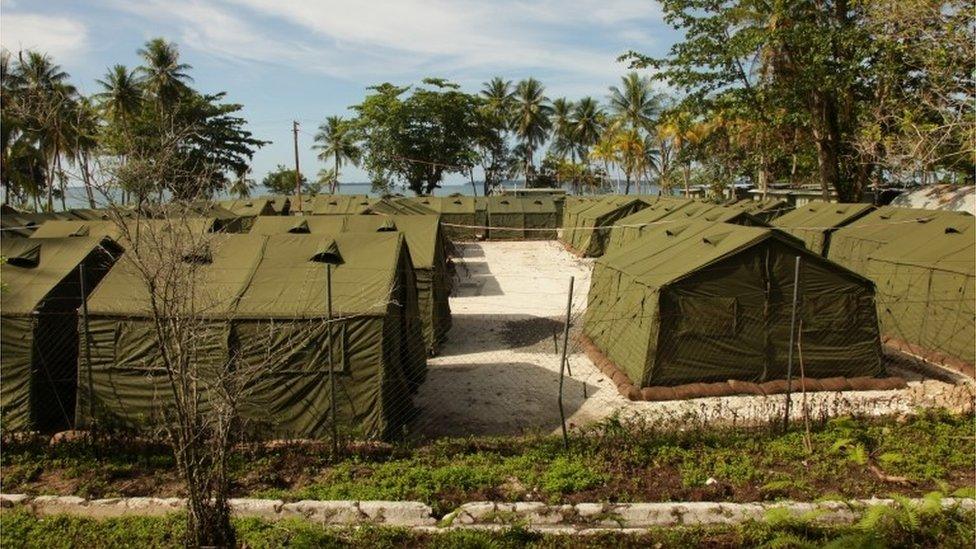Australia rejects Amnesty's torture claim on Nauru
- Published

A demonstrators in Sydney earlier this month protest against Australia's detention centre on Nauru
Australia has rejected a human rights report comparing its asylum seeker camp on the Pacific island of Nauru to an open-air prison.
Australia transports asylum seekers who arrive by boat to off-shore processing centres in Nauru and Papua New Guinea.
An Amnesty International report, external said this was a "deliberate policy to inflict harm on refugees" and imposes conditions that "amount to torture".
Nauru has previously denied claims of abuse at the refugee centre.
Australia has been repeatedly criticised for its tough policy on refugees and asylum seekers.
It says the policy is necessary to discourage people risking their lives at sea to reach Australian territory.
'Unique notoriety'
In the report - titled Island of Despair - Amnesty alleged that many asylum seekers on Nauru have attempted suicide as a result of conditions in indefinite detention.
"The policy that the Australian government is selling to the world as a success is one that it has acknowledged to the public is cruel," it said.
"It has earned Australia unique notoriety as a country that will do everything it can to make sure refugees don't reach its shores and to punish people who dared to try."
Australian Prime Minister Malcolm Turnbull told the Australian Broadcasting Corp: "I reject that claim totally."
"It is absolutely false. The Australian government's commitment is compassionate and it's strong."
Approximately 750 people granted refugee status are living on Nauru with 10,000 locals.
The Nauruan government has not responded to the Amnesty report but has previously criticised an TV report, external that made similar allegations.
The report, by ABC's Four Corners programme, said refugee children were too afraid to attend schools on the island because of high levels of violence and sexual harassment from locals.
The Nauruan government the children had been coached and the filming "stage-managed".
ABC said the programme was "an important story, of obvious public interest".
In August, the Guardian newspaper published more than 2,000 leaked reports from the immigration centre on Nauru.
The "incident reports" revealed widespread abuse and trauma among children and women at the centre. The Australian government said many reports were "unconfirmed allegations".

Australia and asylum
The number of asylum seekers travelling to Australia by boat rose sharply in 2012 and early 2013. Scores of people have died making the journey.
To stop the influx, the government adopted tough measures intended as a deterrent.
Everyone who arrives is detained. Under the policy, asylum seekers are processed offshore at centres on Nauru and Manus Island in Papua New Guinea.
The government has also adopted a policy of tow-backs, or turning boats around.
Read more: Australia asylum: Why is it controversial?

- Published1 September 2016

- Published17 August 2016

- Published12 May 2016

- Published8 March 2016
